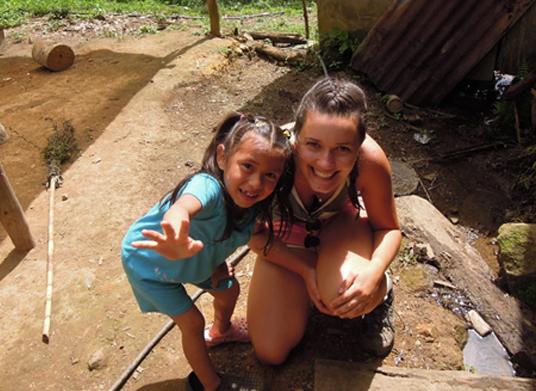Ever wondered how to balanced a degree like Civil Engineering with social activities, relaxation and part-time work? It can seem tricky, but recent graduate, Lizzie Templeton has got it covered. In today’s blog post she explains how she managed her time.

I’ve recently graduated from my MEng Civil Engineering degree and as a student I remember deciding on what mattered to me when choosing a university to study my passion. One thing I get asked about is the difficulty of managing the work life balance and how I found it.
When I first started at Newcastle University in Stage 1, I remember feeling daunted by the number of hours that appeared on my timetable. After comparing timetables in Fresher’s week with my new flat mates, it soon became apparent that, as Engineering students, we were in the minority with our 20+ hour contact time weeks. However, any worries soon disappeared once we got into the routine of our new adventure. The time we were in Uni was very hands on and practical – we were in labs almost every week, keeping things interesting and different. I remember being surprised how broad the range of modules were, incorporating many subjects such as maths, physics, chemistry, and biology.
The difference from Stage 2 compared with Stage 1 was very noticeable. Many of the modules in Stage 1 were theory based, teaching us the basic engineering principles that are pivotal to design. However, from second year there was more of a focus on design standards and applying the knowledge we had previously learnt. This was particularly noticeable in a second semester module “Steel and Concrete Structures”. I also noticed a big increase in independent learning, in our 20 credit Design of Sustainable Engineering Systems module (DSES).
The move to Stage 3 saw more design-based modules following on from previous years, with exams in Geotechnical Design and Design of Building Systems. Again, there was a push towards independence and creative, innovative learning in DSES 3, where we had to develop a basic, client Project Brief into our own detailed Brief.
With the intense workload that comes with a degree in Civil Engineering, it is very important to be able to “switch off” and relax, away from the stress of work. One of my favourite ways to do this was to get out of the house and go for a drink with my housemates. I find it helps to get out, especially if I’d been been cooped up in the library all week. I also liked socialising with friends off the course, allowing me to really relax and not think about any upcoming deadlines.
With regards to managing my work/life balance, I found it regimented in Stage 1. The structured 9-5 timetable made it relatively easy to complete most of my work while in Uni, allowing me to often have the evenings off to relax. However, as I progressed through to Stage 3, more discipline was required from my perspective. The contact hours significantly decreased, to approximately only 12 hours a week. Therefore, in efforts to reduce last minute work and stress, I still endeavoured to maintain structured hours in the library, even when I was not timetabled in Uni. I find this helped me to work without distractions and, apart from during exam period, I often got home to a free evening for my own time.
Successfully following this structure, I had plenty of time to enjoy playing with the Women in Engineering Netball team on Saturdays. This was a fun, relaxed way to keep up my hobby without the pressure of training and away games with the official Newcastle team. Additionally, despite the busy timetables and workload, I managed to work part time as a student ambassador. This suited my work balance extremely well due to the flexibility of the role – allowing me to choose when I’m free to work and for specified hours.